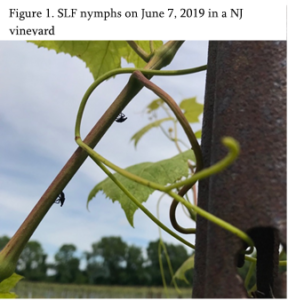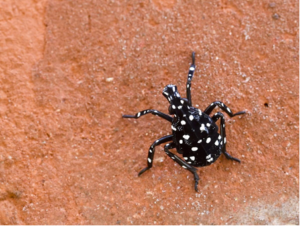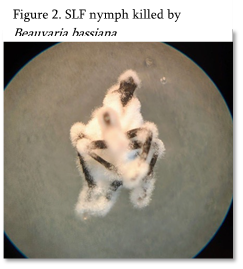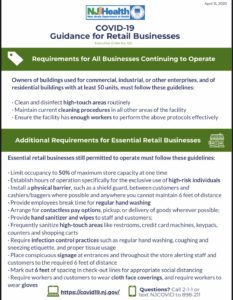The four-part On-Farm Direct Marketing webinar series recordings are now available online and linked below.
Social Distancing and Safe Food Handling Guidance for Farm Markets, Wes Kline
Sales and Distribution Strategies, Bill Bamka and Steve Komar
U-Pick Guidance for Compliance with Executive Orders, Meredith Melendez
Farmer Panel Discussion, Featuring Tracy Duffield, Jessica Neiderer, and David Specca
For more production agriculture resources on COVID-19, including printable signage for customers and farmworkers visit the Rutgers On-Farm Food Safety COVID-19 webpage.




 WASHINGTON, May 26, 2020-–Specialty crops producers can now apply for USDA’s Coronavirus Food Assistance Program (CFAP), which provides direct payments to offset impacts from the coronavirus pandemic. The application and a payment calculator are now available online and USDA’s Farm Service Agency (FSA) staff members are available via phone, fax and online tools to help producers complete applications. The agency set up a call center in order to simplify how they serve new customers across the nation. Applications will be accepted through August 28, 2020.
WASHINGTON, May 26, 2020-–Specialty crops producers can now apply for USDA’s Coronavirus Food Assistance Program (CFAP), which provides direct payments to offset impacts from the coronavirus pandemic. The application and a payment calculator are now available online and USDA’s Farm Service Agency (FSA) staff members are available via phone, fax and online tools to help producers complete applications. The agency set up a call center in order to simplify how they serve new customers across the nation. Applications will be accepted through August 28, 2020.